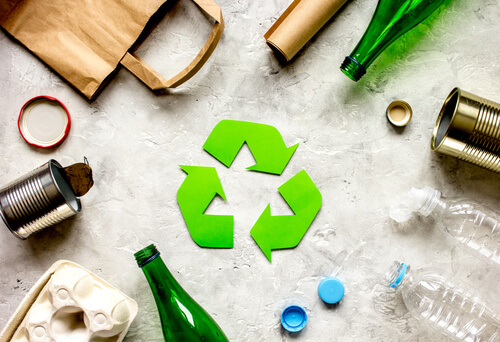
WELLBEING
4 benefits of recycling waste materials
Imagine a Nigeria where we walk on the road without seeing heaps of trash, an environment filled with an atmosphere of clean air. You walk by the streets of the city without having to cover your nose one too many times. Where we savour the presence of rain without any blocked drainage in sight. This is possible through recycling. Recycling is the process of turning waste into new materials and objects. Recovery of energy from waste is often included in this concept. The recyclability of a material depends on its ability to regain the properties it had in its original state. This is an alternative to "traditional" waste disposal, which saves materials and helps reduce greenhouse gas emissions. By reducing energy consumption, air pollution (incineration) and water pollution (from landfills), you can prevent the depletion of potentially useful materials and reduce the consumption of fresh raw materials.
Some materials that can be recycled include: Newspapers and paper towels, aluminium, plastic, glass, soft drink containers, steel cans, plastic, bottles etc.
Below are some benefits of recycling whilst protecting our environment:
- Financial gains: Yes, you can make a lot of money from recycling. Recycling saves energy that is required for the mining and processing of raw materials. the amount of energy required in the manufacturing process can be decreased. The conservation of energy which is achieved by recycling paper, plastic bottles, cans, and other related goods helps in reducing energy bills and benefit manufacturing industries. This will curb a lot of issues in unemployment as people make money every day from recycling waste into things like tissue paper, soap, automotive parts and even arts and craft.
- Climate change: Recycling will improve the air in our climate and cut down on carbon emissions. We no longer have to burn all our refuse which eventually cause air pollution, keeping potentially methane-releasing waste out of landfill sites. Instead, we can recycle it thereby making our environment better inhabitable.
- Conserving the earth’s natural resources: The world is running out of natural resources because of increase in population, our natural resources are finite, and some are in very short supply. Recycling paper and wood saves trees and forests. Recycling plastic means creating less new plastic. Recycling metals means there's less need for risky, expensive and damaging mining and extraction of new metal ores. Recycling glass reduces the need to use new raw materials like sand – it sounds hard to believe, but supplies of some types of sand are starting to get low around the world.
These and many more examples abound.
AXA Mansard has made a commitment to protect the environment through the following:
- Reduce our energy consumption through a focus on energy efficiency solutions that optimize the usage in our buildings.
- Reduce our office paper consumption and minimize the use of paper for our marketing and distribution activities whenever allowed by local requirements and regulators.
- Reduce our water consumption in all AXA Mansard’s facilities.
- Reduce the emissions derived from our business travel by minimizing the number of long-distance trips of our employees, stimulating the use of alternative means of communication.
- Seek suppliers that support us in this journey through their solutions and business practices following the guidelines set in our Responsible Procurement Strategy.
Remember that AXA Mansard provides you with great financial solutions including protection, asset management and health insurance. For more information, call us on 0700 AXA MANSARD (0700 292 6267273) or send an email to ccare@axamansardhealth.com



.jpg)
.jpg)
.jpg)